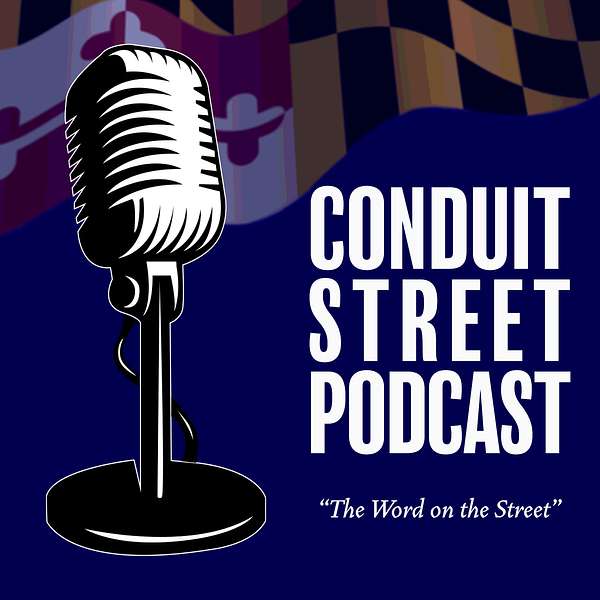
Conduit Street Podcast
From the halls of the State House to the heart of county government, the Conduit Street Podcast breaks down the decisions shaping Marylanders’ daily lives. Produced by the Maryland Association of Counties (MACo), this weekly podcast offers smart, accessible insights on the latest state and local policy — with counties always at the center.
Explore how legislation, executive actions, and agency decisions affect essential public services like education, infrastructure, public safety, health, and other core functions that matter most to Maryland residents. With special guests from across the state and the occasional world-famous dad joke, Conduit Street keeps you informed, engaged, and ready for what’s next.
Whether you’re a policymaker, a public servant, or just policy-curious, this is your front-row seat to Maryland’s political landscape.
Conduit Street Podcast
Revisiting Redistricting
Use Left/Right to seek, Home/End to jump to start or end. Hold shift to jump forward or backward.
On the latest episode of the Conduit Street Podcast, Kevin Kinnally and Michael Sanderson explain the significance of new 2020 Census data for state and local redistricting, break down the nuts and bolts of Maryland's redistricting process, and detail key timelines in the scramble to draw new boundaries in time for next year's midterm elections.
The timing of Census data, somewhat delayed by the pandemic, will make the upcoming district design an unusually compressed process. While the U.S. Census this week released raw, untabulated Census data, adjusted data won't be available until September -- according to the discussion on the Conduit Street Podcast earlier this year – leaving district-drawing commissions at every level with a short timetable to develop their final work.
In Maryland, the General Assembly has principal authority to draw both congressional and state legislative district lines.
The governor, aided by an advisory commission, submits a state legislative redistricting proposal. The legislature may pass its own plan by joint resolution. If the legislature fails to approve its own plan, the governor’s plan takes effect. Congressional lines are drawn solely by the legislature.
In a landmark decision, the United States Supreme Court ruled that partisan gerrymandering challenges to electoral maps are political questions and thus beyond the reach of the federal courts, dismissing challenges by voters in Maryland and North Carolina.
The ruling held that Maryland did not have to redraw congressional election districts before the 2020 elections. Instead, the maps must be redrawn in time for the 2022 elections, in accordance with 2020 Census data.
The Conduit Street podcast is available on major platforms like Spotify, Apple Podcasts, Google Podcasts, and more. Episodes are also available on MACo's Conduit Street blog.
Listen to previous episodes of the Conduit Street Podcast on our website.
Previous Conduit Street Coverage
December Special Session May Loom to Tackle Congressional Re-Districting
Conduit Street Podcast: Data and Districts with Planning Sec. McCord
SCOTUS: Federal Courts Have No Role in Partisan Gerrymandering Cases
Hogan Executive Order Establishes New Redistricting Commission
President Ferguson, Speaker Jones Announce Legislative Redistricting Commission